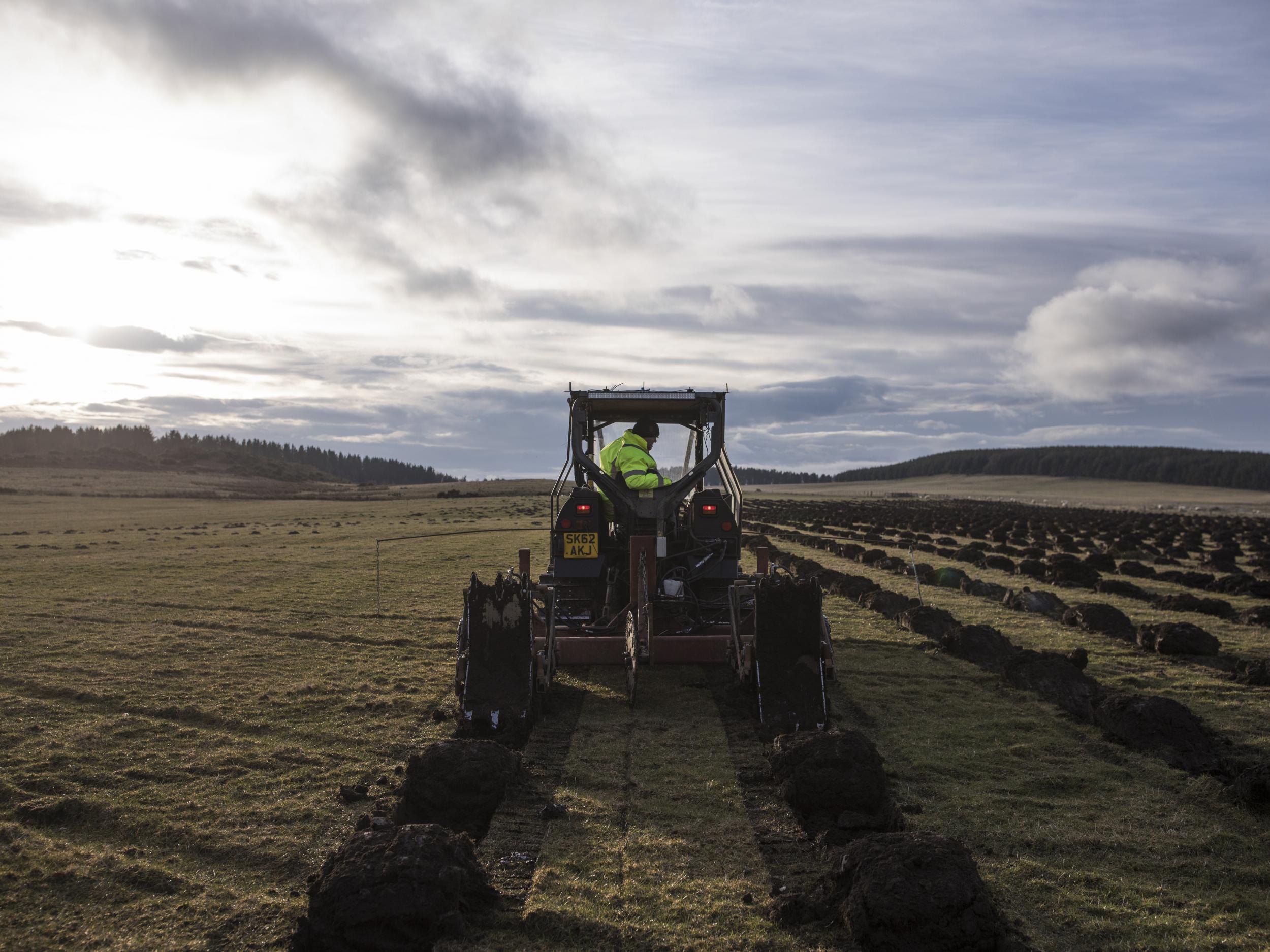Forest size of Yorkshire must be planted for UK to meet its climate targets, scientists warn
Government-commissioned report lays out first UK strategy for sucking greenhouse gases from atmosphere in bid to avert climate change

Huge fields of crops and tracts of forest should be planted across the British countryside to suck carbon dioxide from the atmosphere, according to a new report.
As the nation strives to cut its greenhouse gas pollution by turning its back on fossil fuels, experts have warned this will not be enough to meet the UK’s strict climate targets.
To avoid the worst effects of climate change, countries must actively remove greenhouse gases that have already entered the atmosphere.
Now, in the first plan of its kind for the UK, scientists have laid out an ambitious strategy to do just that involving massive biomass burning plants and carbon stored deep underground.
This strategy was commissioned by the Department for Business, Energy and Industrial Strategy, but produced independently by the Royal Academy of Engineering and the Royal Society.
Together the approaches have the capacity to make the country carbon neutral by the middle of the century, but the scientists warn there is no time to lose.
“A clear outcome of the report is that we need to act quickly,” said Professor Gideon Henderson of the University of Oxford, who led the team.
10 photographs to show to anyone who doesn't believe in climate change
Show all 10“There is no silver bullet, but there are a wide suite of technologies and methods that have been suggested for greenhouse gas removal.”
The government has suggested it will aim for “net zero” emissions by 2050, at which point the UK’s greenhouse gases will be cancelled out by the amount that is removed.
However, with sectors such as aviation and agriculture proving difficult to clean up, switching to renewable energy will still leave a huge quantity of greenhouse gases in the atmosphere.
“If we go down a path of transforming our energy system, our transport system, the industrial base, how buildings work… We could get to about 130 million tons of CO2 equivalent by 2050,” said Professor Nilay Shah from Imperial College London.
“To get to net zero we need to find methods to take 130 million tons of carbon dioxide actively out of the atmosphere every single year.”
They estimate that using methods already available such as planting trees and restoring natural habitats it should be possible to remove 35 million tons of CO2 by 2050. This includes expanding the UK’s existing forested area by 1.2 million hectares, around the size of Yorkshire.
Beyond that, the UK will need to invest in technologies that are not widely used – chief among which are carbon capture technologies.
The most direct way of doing this is to remove CO2 from the air and store it somewhere it cannot do any harm, such as underground in geological formations.
A more roundabout method involves growing bioenergy crops which can then be burned to produce energy, with the CO2 released as they burn being captured and stored. For this technique to be applied on a significant scale, vast areas of land would have to be transformed to grow the appropriate bioenergy plants.
Such substantial changes to the British landscape could be a source of controversy, according to report contributor Professor Corinne Le Quere of the University of East Anglia.
“People will respond to these technologies in different ways, and opposition could limit deployment,” she said, noting that it would be vital to engage local communities and communicate the costs and benefits effectively.
While the UK has a £9m research programme investigating some of these techniques, Professor Henderson said this was “insufficient” if the kind of revolution outlined in their report is to be implemented.
The team also noted “early signs of activity” including tree planting targets and coal plants being converted to biomass facilities, but said there is a need for more government intervention.
Such action could include a post-Brexit subsidy system to encourage farmers to use their land to store carbon.
These suggestions were broadly welcomed by other researchers, who praised the ambition of the plan.
“The report is bold in calling for field-scale experimentation of untested technologies, and deployment of others. However, it needs to be bold,” said Dr Phil Renforth of Cardiff University, who was not involved in the work.
“We desperately need the research described in the report to develop these diverse technologies into workable solutions.”
Subscribe to Independent Premium to bookmark this article
Want to bookmark your favourite articles and stories to read or reference later? Start your Independent Premium subscription today.

Join our commenting forum
Join thought-provoking conversations, follow other Independent readers and see their replies